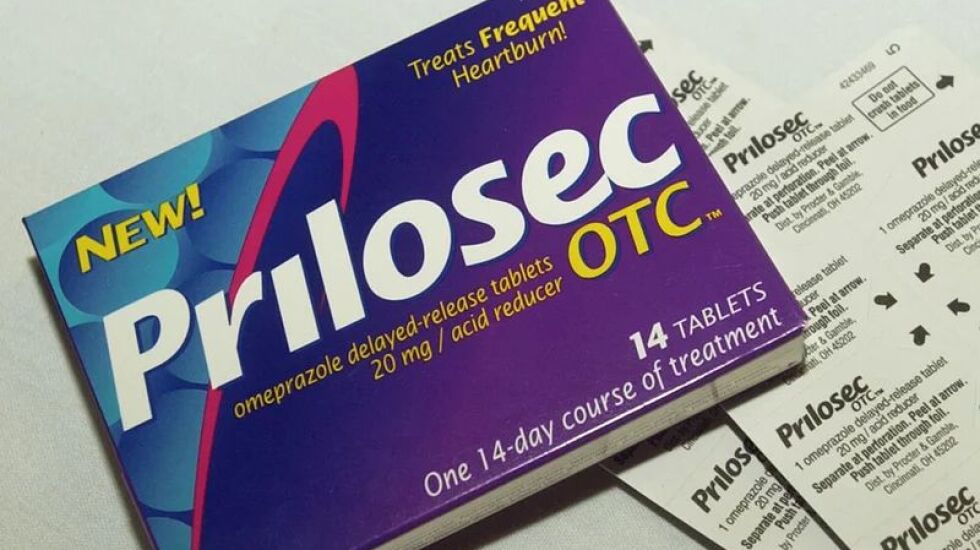
People who use a common type of acid reflux drug for more than four years face a higher risk of dementia later in life, a new study found.
The research examined people prescribed proton pump inhibitors for frequent acid reflux, stomach ulcers or other digestive tract issues. Those who took the drugs more than 4.4 years had a 33% greater likelihood of developing dementia compared to those who didn’t take the medication, according to a study published in the journal Neurology.
Over-the-counter versions of proton pump inhibitors include those sold under the brand names Prilosec, Nexium and Prevacid.
Acid reflux occurs when acid escapes the stomach and reaches the esophagus, often after a meal or when going to bed. The common condition can cause gastroesophageal reflux disease, which can damage the esophagus and increase cancer risk. Proton pump inhibitors reduce stomach acid by targeting acid-producing enzymes in the stomach lining.
The study is the latest to link these types of medications used by millions of Americans to a growing list of conditions such as stroke, heart disease and kidney disease.
Previous studies reported mixed results on links to dementia. Two robust reviews — both examining a collection of independent studies — found no significant links between dementia or Alzheimer’s disease and use of proton pump inhibitors.
The authors of the new, National Institutes of Health-funded study said it doesn’t prove these medications cause dementia but provides evidence sustained use of these medications could pose a risk of dementia, which afflicts about one in three adults 85 and older.
“Patients should talk to their doctors and share with them all the medications they are taking,” said Dr. Kamakshi Lakshminarayan, the study’s author, who is a vascular neurologist and researcher at the University of Minnesota School of Public Health. “They can review the medications, including any over-the-counter medications they may be taking, and discuss the reasons for taking each medication with their doctor.”
Dr. Fouad J. Moawad, a gastroenterologist and spokesman for the American Gastroenterological Association, said past studies with conflicting results on dementia risk can be “confusing for both patients and prescribers.”
Moawad recommends taking the lowest effective dose for those who need the drugs to control stomach acid for severe reflux esophagitis, Barrett’s esophagus and and peptic ulcers. He also recommends that people cut out foods known to trigger stomach acid, don’t eat within three hours of sleeping, elevate their head when sleeping and lose weight.







